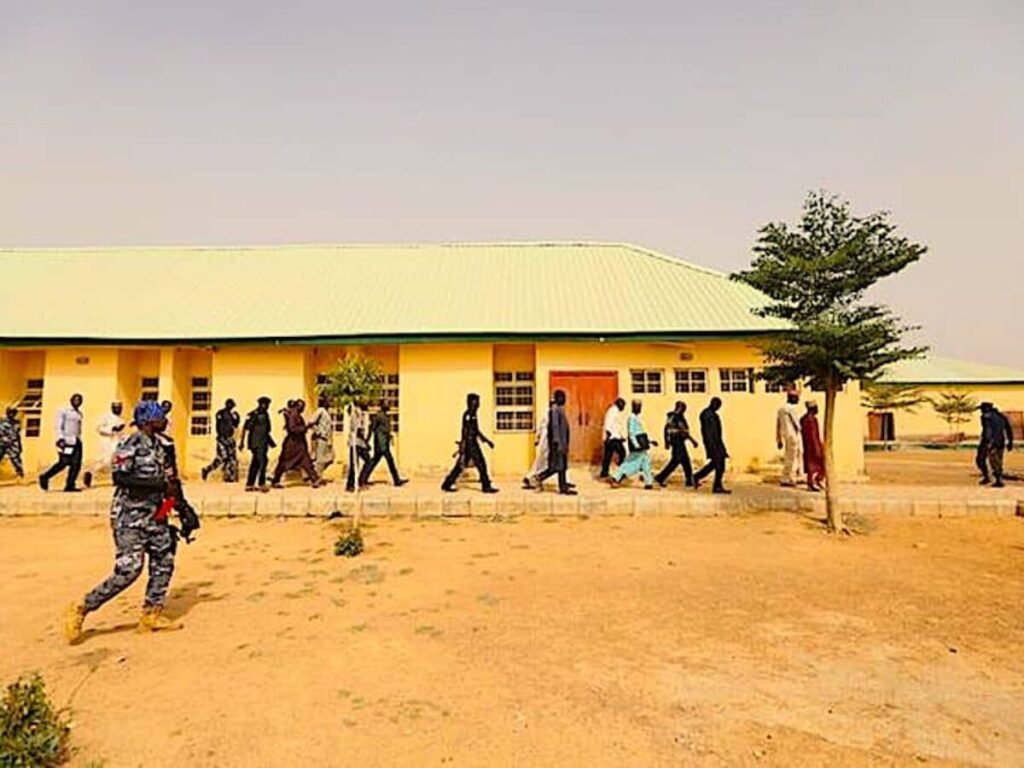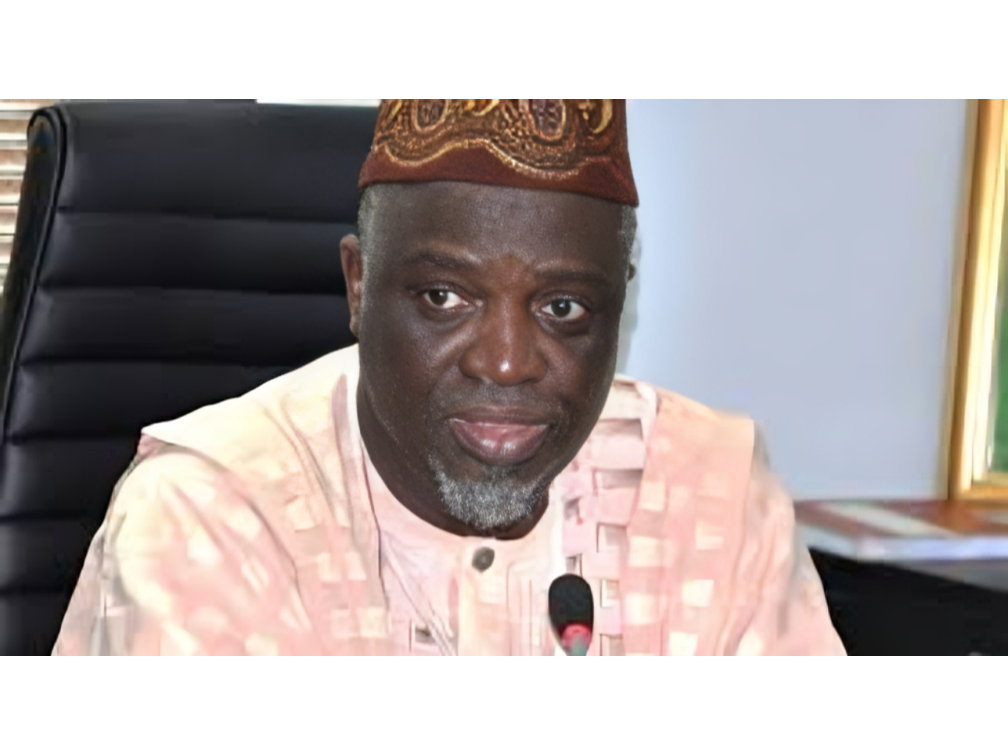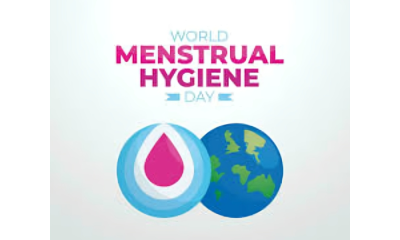Education
We Have no Legal Power to Regulate School Fees in Private Schools – State Govts

The Anambra and Enugu State Governments say they have no legal authority to regulate the payment of tuition fees among private schools in the state.The two state governments disclosed this during a survey conducted by the News Agency of Nigeria (NAN) on “exorbitant school fees paid in private secondary schools and employment of unquantified teachers”.
Prof. Ngozi Chuma-Udeh, the Anambra Commissioner for Education said, “the issue of exorbitant school fees is the sole business of private school owners and we have no right to interfere; it is a competitive arena. “We have a school like the British College here, they are charging almost a million naira, while there are other private schools charging N50,000 as school fees,” she said.Chuma-Udeh said that for one’s child to attend any school, be it public or private school, depends how much the person could afford.Accordding to her, the public schools are there, if you cannot afford the private school.She said that the state was doing everything possible to ensure that the private schools in Anambra adhered to the high standard of education set by government.The Commissioner said that the minimum requirement for nursery, primary and junior secondary school teachers in the state was the Nigeria Certificate in Education (NCE).She said that the senior secondary schools would require graduate teachers with Bachelor of Education (B. Ed), Bachelor of Science and Bachelor of Arts (B.Sc/B.A), Higher National Diploma (HND), Bachelor of Arts and Post Graduate Diploma in Education (PGDE) and Bachelor of Science with Post Graduate Diploma in Education (PGDE). Also speaking, Mr Julius Udekwe, Deputy Chairman, Association of Private School Owners in the state said that private schools under the association adhered to the government standard establishing private schools in the state.On the issue of exorbitant school fees, he said that the association was mindful of the current economic hardship faced by Nigerians, hence they tried to make school fees and other charges affordable to ensure quality education.“We don’t bill parents and guardians too much, considering the current economic hardship we are facing right now,” he said.Udekwe noted that the purpose of establishing private schools was to compete with the public schools to bring about standard.“What we do is to equate the cost with the standard of education we offer and not to turn it into money spinning business,” he said.In Enugu State, the Commissioner for Education, Prof. Ndubueze Mbah, described the high fees charged by private schools as ‘Parental Choice”.The commissioner said that the state was working hard to leave a legacy of quality and affordable education to children in Enugu State.According to him, parents can make choices of sending their children to study in any part of the world and pay any amount they want to pay.“The ministry has no power over that but what we are doing is providing free Universal Basic Education to all children in the state as Enugu has best school system in Africa through Enugu Green Smart Schools.“Even in the senior secondary school, we have abolished all fees apart from N4,500 minimum administrative fee aimed at making senior secondary school very affordable for parents and ensures that every child in the state has access to quality education,” Mbah said.He added that the state through the ministry had passed and circulated policy which reaffirmed the commitment of the state government to regulate minimum standard for the establishment and running of private schools in Enugu State.This, he said, had set out the legal requirement for obtaining approvals and licences to operate a school in the state.Mbah said the minimum requirement include the condition of facilities, safe and conducive environment for learning, teacher-pupil ratio, ensuring qualified and certified teachers by the Teachers Registration Council of Nigeria.“Ensuring fidelity to Nigeria curriculum, a code of conduct for teachers and students, textbooks and instructional materials are taken from the gazetted approved books by the Education Resource Centre.“In line with this, several unapproved and unlicensed schools have been shut down while the ones struggling to meet the minimum standard but showed considerable promise, have been given time to meet those standards.“The education law requires that the ministry maintain register of teachers where all the qualified and certified teachers in the state are enrolled and registered.“All these is to ensure that public, private and mission schools employ and rely on the services of qualified and well trained teachers,” the commissioner said.A parent, Mrs Blessing Ejiofor said that the high fees were worrisome, decrying that she and her husband paid through their nose to enrol their son in Junior Secondary School in a missionary School.According to her, they spent over a million naira to pay for their son’s tuition fee, exam fee, textbooks, hotel fee, laptop and others.“It is not easy but we are managing to give our child best and quality education,” she said.In Ebonyi, some private school owners under the National Association of Private Proprietors of Schools (NAPPS), in the state, said tuition and other sundry fees charged by members are moderate.A cross section of the members who spoke in separate interviews in Abakaliki, debunked claims that private school owners in the state charged exorbitant school fees.According to them, private schools in the state do not charge high fees rather the fees charged were moderate fees to cover the costs of operating the school, including teachers salaries, facilities, and other expenses. They noted that unlike public schools that received funding from the government, private schools were self-funded and relied on the school fees and sundry fees to pay staff salaries and meet other operational costs.They said: “Private schools are responsible for paying their own teachers and other staff, unlike public schools which are funded by the government.“Private schools need to pay for facilities and maintenance and cover the costs of educational programmes, classroom materials, technology infrastructure, and extracurricular activities.”Mr Paul Ogwale, a private school owner in Abakaliki said that proprietors of private schools struggle to pay salaries of their staff and other running costs due to high cost of maintaining the schools since they were not funded by the government.He said that only a few of the private secondary schools, especially those in the state capital charged school fees up to N50,000 stressing that most of the private schools collected between N25,000 and N30,000 per term as school fees.“The income level of average family in the state is very low and fees are charged so that parents will be able to afford them.“In Ebonyi, most private school owners struggle to pay staff salaries and still meet up with other current and capital expenditures due to low income generation by the schools.“School business takes a long period for it to start yielding the expected return on investment (RoI) which is why most of the schools are closing down because they cannot afford what it takes to remain afloat,” Ogwale said.He emphasised that the association placed much premium on quality, therefore maintaining strict monitoring and supervision to ensure that qualified teachers were engaged to teach the children.“In terms of school fees, Ebonyi is where you can get the best without compromising quality and standards of teaching and learning.“The fees are affordable; as operational costs rise, private schools may be compelled to increase tuition fees to sustain their operations,” he added.A teacher in Holy Ghost Foundation Schools (HGFS), in Abakaliki, who spoke on condition of anonymity, said that the school ranked one of the best in terms of academic excellence and infrastructure but remained the least expensive.It said that the school was founded in 1975 and had produced several national and international personalities yet the school fees when compared with its contemporaries in other states remained among the least expensive.“The cost of admission including school fees and other service charges is less than N50, 000 except the student is in examination class transferring from other school then he or she will be expected to pay for the examination fees,” the source said.Mr Ignatius Ugbala, another school proprietor said that the service rendered by private schools were far more than the fees paid by parents for their children to acquire quality education.“We engage qualified staff, ensure strict supervision of staff and provide needed instructional materials to enable the teachers to impact practical knowledge to the students,” Ugbala said.Meanwhile, Mr Raymond Onwe, a parent, whose three children are in some of the private schools, said that he preferred private schools to public school due to the strict supervision of teaching and other academic activities unlike in public schools.” I don’t think the amount charged by private schools in the state are that expensive given the quality of service they render and the complementary role the private schools make in provision of quality education.“Yes, I have my three children in private schools and I think having them their is the best decision because they receive good and quality teaching,” Onwe said.He called on governments at all levels to prioritise education sector stressing that every development and progress a society could make was tied to its educational standard. (NAN)community
UTME: JAMB To Hold Additional Mop-up Exam for Absent Candidates

Joint Admissions and Matriculation Board (JAMB) says it will conduct additional mop-up examinations for candidates who missed the 2025 Unified Tertiary Matriculation Examination (UTME).
JAMB Registrar, Prof. Is-haq Oloyede, stated this on Wednesday in Abuja at a meeting with key stakeholders to address the challenges encountered during the 2025 UTME.
Oloyede said that the board would accommodate the estimated 5.
6 per cent of candidates who missed the examination by organising a special mop-up exercise.He said that the board had extended the opportunity to all the affected candidates, regardless of the reasons for their absence.
“Normally, we hold one mop-up nationwide for those with one issue or the other.
“But this time, we are creating a new mop-up. Even those who missed the earlier examination due to absence, we will extend this opportunity to them.
“It is not that we are doing something extraordinary; in class, you make up an examination when students miss it for one reason or the other; we just don’t allow abuse of that.
“So we will allow all the candidates who missed the main examination for any reason to take part in this mop-up,” he said.
Oloyede criticised some public commentators who misunderstood and misrepresented the role of UTME, while clarifying that UTME was a placement test and not an achievement test.
According to him, the purpose of the examination is to rank candidates for available spaces in institutions and not to measure intelligence or overall academic potential.
The registrar further stated that high UTME score was not the sole determinant of admission, adding that combined performance, including post-UTME scores and school assessments, could significantly affect a candidate’s ranking.
While acknowledging the emotional strain experienced while announcing the UTME results, he noted that this was not indicative of an institutional weakness.
He expressed JAMB’s commitment to resolving issues affecting the examination process, even as he rejected comments suggesting that the administrative failure was due to incompetence or ethnic bias.
“I want to say this clearly, particularly because I accepted responsibility, not because I do not know how to do the work.
“I say it for the fourth time that no conspiracy theory is relevant to this case.
“Something happened; like people who have been doing something well for years and something just went wrong. That I should now throw them under the bus? No,” he said.
Oloyede, who frowned at those exploiting difficulties to promote ethnic or conspiracy-driven narratives, urged stakeholders to stop ethnic profiling in the education sector.
According to him, many of the criticisms of JAMB’s operations are rooted in ignorance.
The registrar, however, commended his team’s efforts, while also appreciating the resilience shown by candidates, many of whom, he said, had continued their exams, notwithstanding the various challenges. (NAN)
Education
Using CBT for WAEC Will Adversely Affect Sciences— Ebonyi Reps Member

A Federal Lawmaker from Ebonyi, Chief Chinedu Ogah, has declared that the usage of the Computer Based Technology (CBT) for the West African Examination Council (WAEC) would adversely affect science subjects.
Ogah, who represents Ikwo/ Ezza South Federal Constituency at the House of Representatives, made the declaration on Tuesday while speaking with newsmen on WAEC’s proposed plan to introduce CBT from 2026.
The lawmaker said that the move would affect several scientific applications practically used to access students in WAEC examinations.
“What will happen to several scientific.mixtures, equations, mathematical applications among others practically applied during WAEC examinations?.
“Such measures are evidently not feasible and will adversely affect sciences in our educational curricular.
“Science is practical and the earlier we understand this, the better for all,” he said.
He noted that the glitches recorded during the recent Joint Admission and Matriculation Board (JAMB) examination was unfortunate.
“The registrar should review the activities of its Information Communication Technology (ICT) department.
“It is ridiculous for JAMB to conduct the examination without adequate provisions for the ease of candidates,” he said.
Ogah urged people from the south east zone which the glitch was touted to have targeted, to embrace the home grown technology it was known for.
“We are known for technology and innovation.
“Government of south east states should equip our schools with ICT so that students would be acquainted with its usage, early,” he said. (NAN)
Education
Apology over Failure Not Accepted, Kalu Tells Oloyede

By Ubong Ukpong, Abuja
House of Representatives Deputy Speaker, Rt. Hon. Benjamin Kalu yesterday, raised serious concerns bothering on the activities and competence of the Joint Admission and Matriculation Board (JAMB), blasting the examination body for demonstrating gross incompetence, frustrating Nigerians and the nation’s education system in the 2025 Unified Tertiary Matriculation Examination (UTME).
Kalu, who addressed the House of Representatives Correspondents on his misgivings, said the examination body has cost Nigerian people so much pain, leaving candidates traumatized and hopeless.
“The mass outcry that followed the release of this year’s results, and the subsequent technical review, demands not only transparency but decisive action to restore faith in our educational system.
“First of all, let me begin by commending the candor, touching humility, and accountability demonstrated by the Registrar of JAMB, Professor Ishaq Oloyede, and his team in admitting to the technical errors that affected nearly 380,000 candidates across the South-East Geopolitical Zone and Lagos. The swift apology and the decision to offer retake opportunities for all affected candidates reflect a commitment to fairness and justice.
“However, we must recognize that these measures, while necessary, do not erase the trauma, disruption, and uncertainty experienced by our young people and their families. Nigeria unfortunately lost a UTME candidate to suicide, consequentially triggered by the ensuing results of this technical glitch. Our heart goes out to the loved ones of this brave young one.”
On the technical Issues in Detail, the Deputy Speaker who sounded quite displeased said, “The technical review results available to me have revealed that a critical system patch essential for the new shuffling and validation protocols was not deployed to the server clusters servicing 157 centres in the South-East and Lagos.
“One of the most critical discoveries made revolved around three major systemic changes introduced in the 2025 UTME. The first was a shift from the traditional count-based analysis to a more robust source-based analysis of results. In previous years, JAMB evaluated the integrity of examination sessions primarily by counting the number of responses submitted per session. If the majority of candidates in a session of 250 submitted a near-complete set of answers, the session was deemed valid.
“Any significant deviation led to the disqualification of that centre’s results.
However, in 2025, a more advanced model was adopted; one that focused on the actual source and logic of the answers provided, rather than just their quantity.
“The second change involved full-scale shuffling of both questions and answer options. This ensured that even two candidates sitting in the same session would not receive identical permutations, thereby enhancing test security. The third change was a series of systemic improvements aimed at optimizing performance and reducing lag during exam sessions. This was a major policy change that saw the best and highest obtained UTME score in 15 years; a remarkable achievement by JAMB in principle.
“However, while these improvements were technologically sound in theory, a major operational flaw was uncovered during the implementation phase.
“The system patch necessary to support both shuffling and source-based validation had been fully deployed on the server cluster supporting the KAD (Kaduna) zone, but it was not applied to the LAG (Lagos) cluster, which services centres in Lagos and the South-East. This omission persisted across all sessions until the 17th session, after which the error was discovered and corrected.
“As a result, approximately 92 centres in the South-East and 65 centres in Lagos, totalling 157 centres, operated using outdated server logic that could not appropriately handle the new answer submission and marking structure. This affected an estimated 379,997 candidates, whose results were severely impacted due to system mismatches during answer validation.
“To verify the scale and accuracy of this issue, JAMB collaborated with the Educare Technical Team, which had gathered response data directly from over 18,000 candidates. After deduplication and filtering, about 15,000 authentic records were analyzed. Of these, more than 14,000 originated from the regions serviced by the unpatched LAG servers, confirming the technical review’s findings. Comparative analyses between JAMB’s internal audits and third-party system evaluations revealed significant overlap, reinforcing the conclusion that the affected centres were indeed operating under impaired conditions.
“As a result, candidates in these centres were unfairly disadvantaged, with their responses improperly validated and their scores misrepresented. This was not a failure of our students, nor a deliberate act of sabotage, but a preventable human error within our system.
“We must not underestimate the toll this has taken. Parents and candidates have voiced legitimate concerns about the hurried scheduling of re-sit examinations, the overlap with ongoing WAEC assessments, the psychological strain, and the logistical burdens of traveling to distant centres on short notice.
“Reports from the resit examinations held on Friday include complaints of difficult questions, time management issues, more technical glitches, poor centre coordination, and a lack of adequate support for those still affected.”
The Deputy Speaker demanded that, in light of these revelations, urgent actions must be taken to protect all candidates that registered for the examination in year 2925.
He demanded a comprehensive review of all Reports, insisting that, “JAMB must immediately review all available technical and independent reports including those from third-party educational technology companies that have gathered candidate-level data to fully understand the scope and implications of the crisis. Only by triangulating internal findings with external audits can we ensure that no affected candidate is left behind.”
Equally, he demanded for an independent System audit, stating that, “Now that the rescheduled examinations have concluded, I urge JAMB to commission an independent, transparent audit of its entire examination infrastructure. This audit should involve external professionals, system engineers, and academic measurement experts to scrutinize every aspect of the CBT engine, question delivery, answer validation, and result collation processes.”
Kalu called for the safeguarding of affected Candidates, stressing that, “It is imperative that candidates from the South-East and Lagos who have already borne the brunt of these failures are not further disadvantaged.
“JAMB must provide a clear, accessible mechanism for remark and appeal, especially for those dissatisfied with the hurried re-sit or who experienced technical difficulties during the second sitting. Furthermore, coordination with WAEC and other examination bodies must continue to ensure that no candidate’s academic progression is impeded by scheduling conflicts.
He sought transparent communication and Data Release, maintaining that, “JAMB should proactively publish anonymized, candidate-level result data for independent verification and open its systems to Freedom of Information (FOI) requests as a gesture of transparency and accountability.
This will go a long way in rebuilding public trust.”
The Deputy Speaker called for the strengthening of Quality Assurance and Real-Time Monitoring saying that, “going forward, JAMB must implement stronger deployment validation protocols and real-time monitoring mechanisms to prevent recurrence.Every system update must be thoroughly tested and confirmed across all server clusters before deployment during high-stakes examinations.”
Admonishing the affected candidates, Kalu said, “Your frustration is valid, and your voices have been heard. The integrity of our national examinations must never be compromised by technical lapses or human error. As Deputy Speaker, Iassure you that the National Assembly stands ready to provide oversight and ensure that these reforms are not only promised but delivered.
“Let us turn this painful episode into a catalyst for lasting improvement. Our young people deserve a system that is not only fair, but resilient, transparent, and worthy of their trust.I end with this word of note to JAMB: “Strive even when you stumble; transparency and honesty builds trust, and trust propels us forward.”
Several candidates across the country have raised diverse concerns with the processes as superintendent by the examination body, JAMB.
Several candidates went to their centres but could not write due to technical issues in taking their biometrics and were recaptured with a promised reschedule, which has not been communicated yet, leaving candidates in panic.
Others were outrightly said to have been deprived from writing the examination for being minors, after all processes were completed and the Print Out issued.
Some who wrote the examination reported issues accessing their results with the issues code, averting that the network kept deducting their money, without offering the requested service.
Certain interests in the academic sector have continued to call for the scrapping of JAMB, insisting that the examination body was unnecessary, but allegedly profiteering from candidates.



















